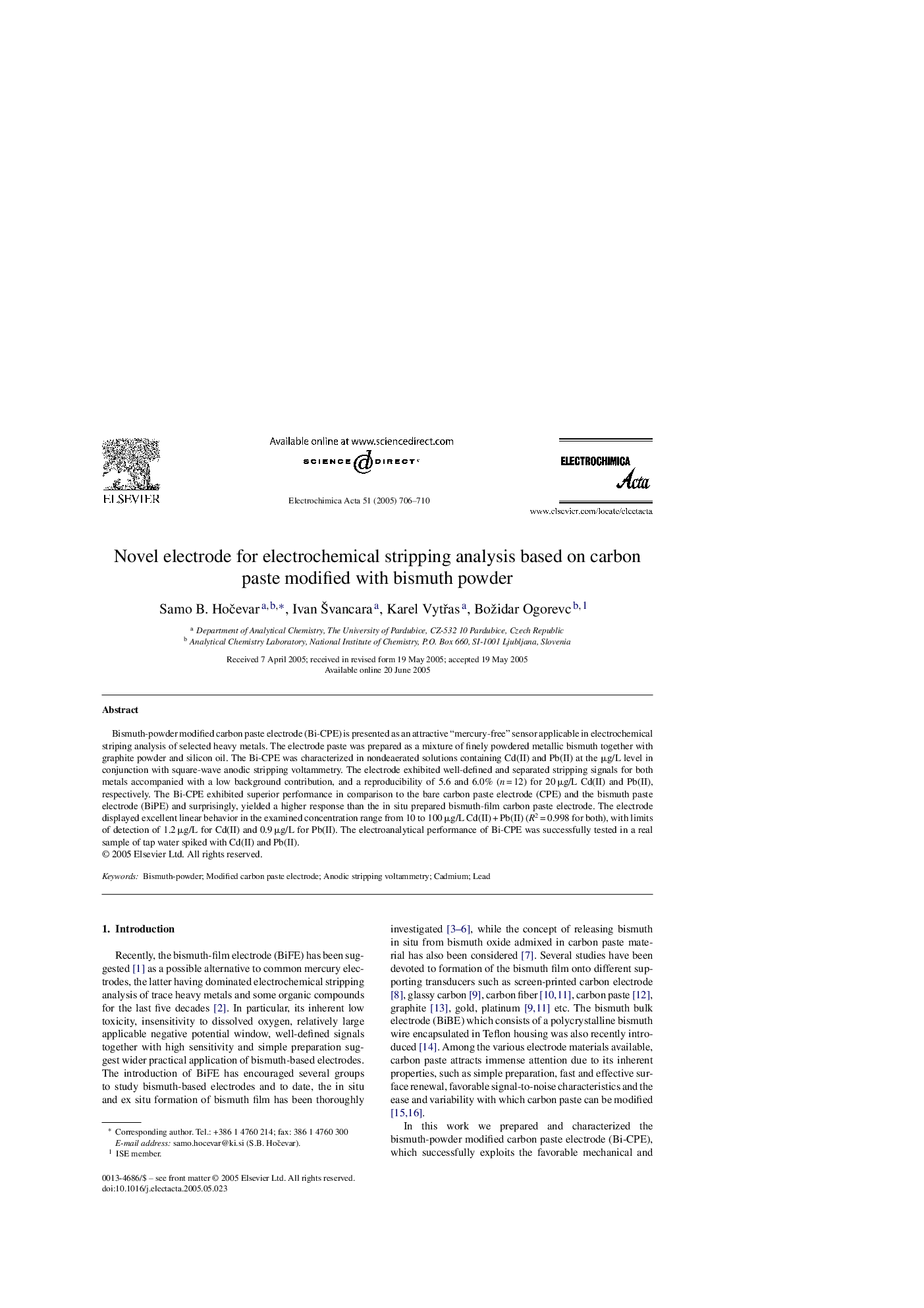| Article ID | Journal | Published Year | Pages | File Type |
|---|---|---|---|---|
| 10269286 | Electrochimica Acta | 2005 | 5 Pages |
Abstract
Bismuth-powder modified carbon paste electrode (Bi-CPE) is presented as an attractive “mercury-free” sensor applicable in electrochemical striping analysis of selected heavy metals. The electrode paste was prepared as a mixture of finely powdered metallic bismuth together with graphite powder and silicon oil. The Bi-CPE was characterized in nondeaerated solutions containing Cd(II) and Pb(II) at the μg/L level in conjunction with square-wave anodic stripping voltammetry. The electrode exhibited well-defined and separated stripping signals for both metals accompanied with a low background contribution, and a reproducibility of 5.6 and 6.0% (n = 12) for 20 μg/L Cd(II) and Pb(II), respectively. The Bi-CPE exhibited superior performance in comparison to the bare carbon paste electrode (CPE) and the bismuth paste electrode (BiPE) and surprisingly, yielded a higher response than the in situ prepared bismuth-film carbon paste electrode. The electrode displayed excellent linear behavior in the examined concentration range from 10 to 100 μg/L Cd(II) + Pb(II) (R2 = 0.998 for both), with limits of detection of 1.2 μg/L for Cd(II) and 0.9 μg/L for Pb(II). The electroanalytical performance of Bi-CPE was successfully tested in a real sample of tap water spiked with Cd(II) and Pb(II).
Related Topics
Physical Sciences and Engineering
Chemical Engineering
Chemical Engineering (General)
Authors
Samo B. HoÄevar, Ivan Å vancara, Karel VytÅas, Božidar Ogorevc,
